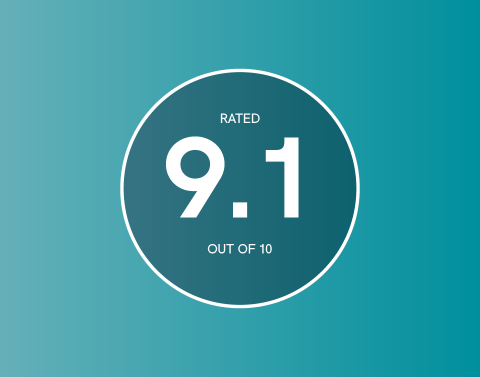According to a survey by the Institute of Leadership and Management (the UK management body), 82 per cent of managers think that flexible working is beneficial to their business. With successful organisations constantly seeking ways to improve their productivity, the advantages to the employer of flexible working practices is achieving a more diverse, more talented workforce.
Changing workplace demographics, employee expectations and the realisation by employers that flexibility is actually great for business, means more organisations are now offering flexible or agile working for employees. Technology has been a huge driver of change within the flexible working realm as virtual meeting software, high-speed broadband and mobile networks help us to engage with work wherever and whenever we like. Gone are the days where work is just the place you turn up at; now, it is increasingly something you can do anywhere, at any time.
The question is - how flexible is flexible? While there are positives to a flexible working approach, if not managed properly, agile workplaces can lead to an unorganised, unproductive business environment from understaffing through to lack of communication, diminished loyalty and incomplete projects. If flexibility leads to a lack of communication, it can create a workforce that is far too flexible. A high percentage of incomplete or unacceptable projects can be an indication of over-flexibility in the workplace; this is especially true in job-sharing where employees sharing the position don’t always maintain regular communication about the status of projects, assignments and deadlines. Additionally, employees who view their workplace as being overly flexible may take advantage of the lack of oversight; ultimately leading to lax performance.
The first annual index tracking the UK’s ‘flexible hiring’ practice was actually published by the organisation Timewise last year, revealing that only 6% of job ads offer flexible working, while almost 50% of employees want it. Research, funded by Joseph Rowntree Foundation, revealed that unlocking a higher volume of quality jobs to flexible or part time hours could tackle underemployment, and also help businesses to attract the best talent. There is a huge talent pool out there which is not being tapped into, simply because not enough jobs are being advertised flexibly. This isn’t just an issue for parents and carers; young people entering the job market today have different expectations about how they will balance work and home life – a degree of flexibility is expected. Employers keen to recruit and retain millennials in their workforce to fill the talent pipeline will need to consider how they meet these expectations.
So what are the main business benefits of being a flexible employer? First and foremost, improved recruitment. Flexibility improves retention figures, reduces absenteeism, increases employee engagement and motivation alongside productivity. However, when it comes to actually building the business case for embedded agile working, there’s so much information out there it can be difficult to know where to start and how to digest it all. ‘Working Families’ recently produced an online, step-by-step guide to help employers; the strapline ‘Happy to Talk Flexible Working’ was introduced by Working Families, TUC, CBI and other leading business organisations. Using this strapline and logo as part of job adverts can signal an effective way to candidates that flexible working is open to discussion.
How can organisations fully embrace flexible working? They need to overcome the remaining cultural barriers which are largely cultural; it’s a question of changing attitudes and shifting perceptions. Organisations that focus on overcoming these will truly realise the benefits of a flexible workforce. There is no ‘right way’ to implement flexible working – it rests entirely on the demands of a particular organisation – but employers can implement clear frameworks and guidelines that will assist in its success. The notable shift towards flexible working represents a change in thinking and a change in the working landscape– performance is no longer measured by attendance, but instead by who is producing results.
While more organisations are offering flexible hours and remote working, part-time and job share roles are still comparatively rare. Rather than considering a job share or part-time role only at the request of staff, consider designing a variety of roles at job creation stage because not every job will require a 35-hour week. As both consumer and employee demand for flexibility increases, managers and HR departments should start to think creatively when developing and recruiting for new roles, opening up a whole new pool of talent.
We are also seeing an increasing number of families where both parents have high flying careers and both want to be involved in childcare. Flexible working to support family life in this way is not just becoming culturally acceptable in the UK; approximately one-sixth of the German workforce of Allianz Global Investors actually works part time – testament to the fact that we have a rapidly changing workplace, globally. ‘Citymothers’ was set up in 2012 to address the ongoing issues faced by women working in traditionally male industries, in particular financial services. Barriers to networking, challenges of childcare logistics and a lack of mentoring programmes are all addressed at Citymothers; the group has grown from 30 to over 4,000 professionals in the financial services industry with strong representation from the asset management sector. A recent report from communication and information technology firm Intercity Technology revealed that financial services companies are proactively encouraging more flexible ways of working, with the average employee now spending 39 per cent of their time working remotely.
There’s no denying that the demands and expectations of our 24/7 consumer culture is growing. What does the future of flexible working look like for the UK? Well, we’re moving towards a fully flexible future, with organisations increasingly recognising and welcoming the benefits of working more flexibly for both staff wellbeing and their bottom line.
If you’re looking for new opportunities, contact us today for an open and honest conversation +44 (0) 207-649-9464 / london@ojassociates.com



